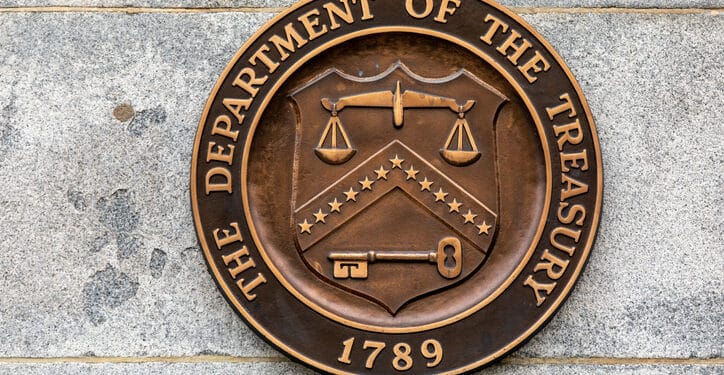Whistleblower advocates are continuing to call on the U.S. Treasury Department and Financial Crimes Enforcement Network (FinCEN) to craft regulations for the recently established Anti-Money Laundering (AML) Whistleblower Program that are consistent with the United States’ global anti-corruption agenda.
Whistleblower advocates heralded the Anti-Money Laundering (AML) Whistleblower Improvement Act, which passed Congress in December 2022, as one of the most important anti-corruption laws ever passed. Since the bill’s passage, leading whistleblower attorney Stephen M. Kohn, founding partner of Kohn, Kohn & Colapinto and Chairman of the Board of National Whistleblower Center (NWC), has authored articles and submitted letters outlining how the rulemaking process will determine how well the AML Whistleblower Program will work for international whistleblowers and how well it will therefore work in furthering the U.S.’s anti-corruption agenda.
In a letter sent in late October to the Department of Justice, Treasury, and FinCEN, Kohn explains that “efforts to combat violations of the Bank Secrecy Act, money laundering, and sanctions are critically important to national security, the integrity of the international financial systems, combatting corruption, and enhancing democracy. These goals, and the use of whistleblowers to achieve these goals, are recognized as part of the core public policies of the United States.”
Kohn notes that in October, Andrea Gacki, the Director of FinCEN, explicitly acknowledged FinCEN’s “support” of the White House’s 2021 United States Strategy on Countering Corruption. The Strategy outlines an approach for the United States to elevate its fight against corruption, and specifically mentions utilizing money laundering whistleblowers.
Kohn writes that “it is imperative that the regulations approved by the Department of Treasury (in consultation with the Department of Justice), strictly comply with the mandates and intent of the Strategy. This implementation should also be guided by recommendations contained in the Organization for Economic Development and Cooperation’s (OECD) audit of the United States’ anti-bribery program. The OECD’s findings are consistent with the Strategy.”
In the rest of the letter, Kohn examines specific pillars of the Strategy and details how the Treasury’s rulemaking needs to align with them. The letter contains specific recommendations on whistleblower program rules related to a wide range of issues including, TCR filing requirements, confidentiality, the definition of “voluntary,” and reporting to international agencies.
As a whole, Kohn’s recommendations are meant to ensure that the AML Whistleblower Program does not discriminate against the unique needs and situations of international whistleblowers. Properly incentivizing and protecting these foreign whistleblowers is essential if the program is to fully live up to it’s anti-corruption potential.
“If FinCEN follows the mandates of the Strategy, FinCEN will be able to construct a program that protects and compensates whistleblowers who are often in extreme danger worldwide,” Kohn writes in conclusion. “Many whistleblowers are unable to live normal lives after courageously exposing wrongdoing. Often subjected to life-threatening retaliation, they have limited employment prospects and sometimes require police protection due to the reprisal they face from organized crime and corrupt government officials.”
National Whistleblower Center is calling on whistleblower supporters to join in on the push for AML whistleblower rules which work for international whistleblowers. They have created an Action Alert allowing individuals to send their own letters to Treasury officials calling on rules which will help whistleblowers expose corruption worldwide.
Take Action:
Call On FinCEN To Enact Rules that Align with Anti-Corruption Priorities
Further Reading:
Letter to Treasury, FinCEN, and DOJ
AML Whistleblower Program Rules Seen as Key in Global Fight Against Corruption


